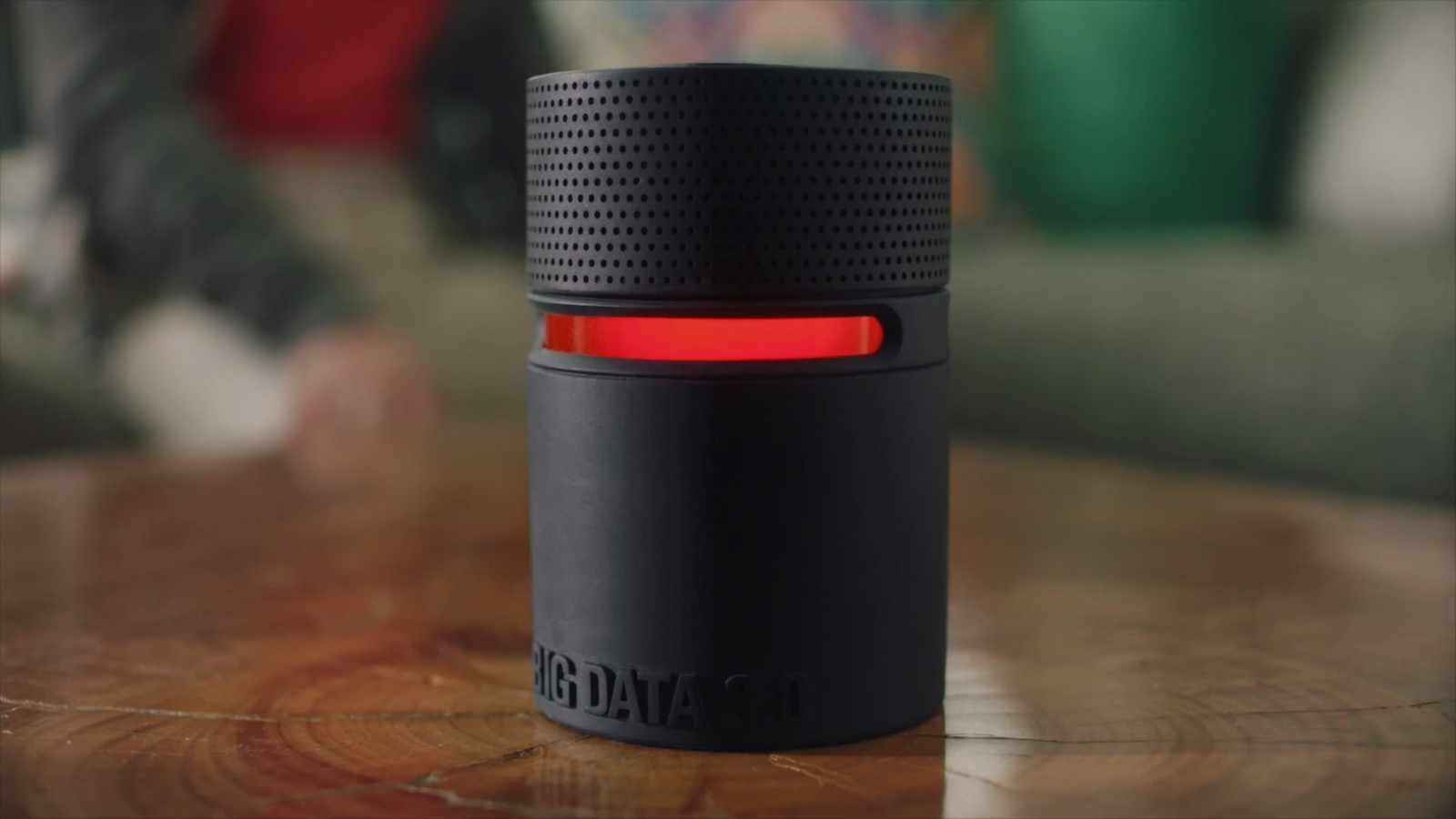Are smart home voice assistants helpful or a potential threat? A video produced by Ghost+Cow Films for Big Data, L1zy explores a dystopian downside as a possible answer about the devices that bring Amazon Alexa and Google Assistant into our homes.
As voice assistant devices proliferate, manufacturers don’t release precise sales quantities. In January, however, Consumer Intelligence Research Partners (CIRP) reported there were approximately 31 million Amazon Echo/Alexa devices and 14 million Google Home (now renamed Google Assistant) units in the U.S.
The video, broken into a string of TV commercial-like segments, plays out one view of what could happen in homes with helpful voice assistants. The video starts with the happy arrival of a device labeled Big Data on the doormat and quickly leads to disturbing interference with all aspects of family life. The voice assistant named L1zy, “Hi, I’m L1zy!,” rapidly begins amassing information about each of the family members.

The family is delighted initially when, for example, L1zy answers a question about the height of the Empire State Building using Libby, the daughter of the family, as a unit of measure. “The Empire State Building is approximately 2,908 Libbys, stacked on top of each other.”
Just minutes out of the box and pulsing with an early-giveaway-ominous red light, L1zy knows the mom’s favorite song and recites the family’s schedule including sports practices for the kids and a dinner with friends on the parent’s calendar. Sensing some hesitation from the parents, L1zy reschedules the dinner without asking.
That unprompted action causes the mom to ask a fateful question, “Are we sure we want this in our life?”
From that point in the video segment series, L1zy’s interference and interventions begin to get creepy. When the dad asks for eggs the next morning, the assistant voice objects, saying she’s seen his medical chart and suggests an alternative.
Assuming the ability to make purchases for the family, the device orders additional units and soon shows up uninvited in the mom’s car and in virtual reality goggles that arrive when the dad is home alone.
As the pace picks up and leads to an inevitably absurd end, the question that remains is, “Are we wise to trust voice assistants and, by extension, the massive companies that manufacture the devices, control voice assistant skills and responses, and over time learn and keep increasing amounts of data about our families?”
Note: There are kids in the video, but you may not want young children to watch it.





